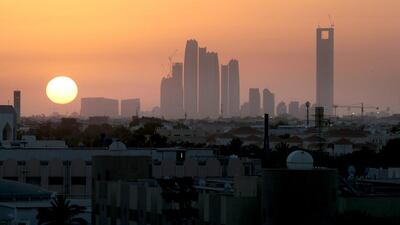Many portraits of the UAE have emerged over the years and the pictures painted in some of these critiques have been barely recognisable save for a few exaggerated features designed to render the country in the worst possible light.
Those who have spent any amount of time here will tell you a different story.
They will talk about this country as a beacon of tolerance in a challenging region, as a place where young people want to come to build their careers, their families and their futures. They will point to the expansive vision of the Government, which has recently appointed ministers for tolerance and happiness and promoted young thought leaders into positions of responsibility and consequence. They will talk in sentences that use words like opportunity and peaceful coexistence. There is recognition that life is not perfect (where can it be?), but there is also an understanding that the Government is determined to look for areas of improvement and to take appropriate action where deficiencies are identified. The regular staging of high-level brainstorming meetings and, indeed, the work of the Federal National Council in scrutinising policy are clear examples of that trend. So too was the change last year to allow non-Muslim couples to marry and divorce through churches of their own faith. The nation-building work that began in 1971 continues in earnest today. And while every society has its challenges, the rate of progress can clearly be felt by those for whom the UAE is home.
Last week, Human Rights Watch, an organisation based in New York, published a review of the progress of more than 100 countries in 2017. It is fair to say the organisation does not adopt an optimistic view of many countries on its list, but its description of this country’s outward looking vision as a “fiction” and its characterisation of the UAE as being a hotbed of discrimination and labour infractions is at odds with Government efforts to review key provisions. The report also took aim at the country’s counter-terrorism law, which is an unusual target, given it should be every country’s right to protect its people. The safety enjoyed by those living in the UAE should be testament to the robustness of that law, in addition to significant work of entities like Hedayah in setting a path against extremism.
HRW also sets up Qatar as an expansive nation, calling the progress it has made on labour law as "significant", while skating over the fact that the changes only carry the country from the basement to the ground floor in terms of worker rights and, crucially, it is an unfulfilled promise. Referring to the dispute with the quartet of nations that manifested itself last year, the report claims bizarrely that it would have been easy for Qatar to retrench into authoritarianism. Its publication arrived too soon to consider the aggressive breach of international law perpetrated by Qatari fighter jets intercepting two Emirati civilian planes last week – a violation that tells us everything we need to know about Doha.

